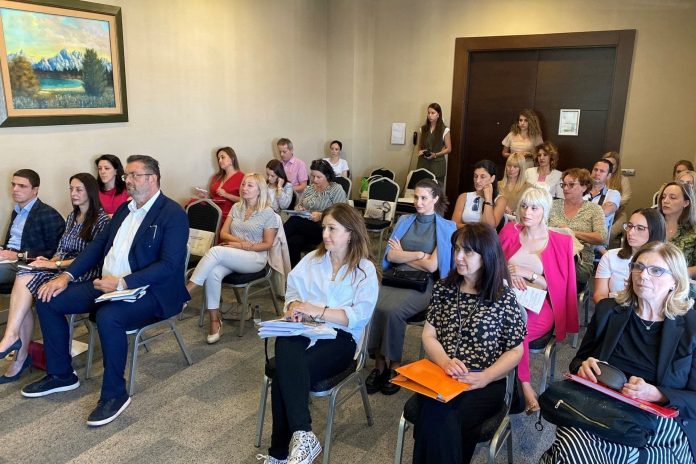Montenegro has taken a significant step towards improving its labor market and facilitating employment through the application of the Law on Recognition of Professional Qualifications for regulated professions. At a workshop in Podgorica, organized by the Ministry of Labor and Social Welfare and the Ministry of European Affairs, with the support of the EU-funded project “Center for Strategic and Legal Advice for Montenegro – PLAC”, Acting Director General of the Directorate for Access and Labor Market Policies, Mirsad Azemović, emphasized that this law ensures that qualifications obtained in Montenegro are recognized in the EU and vice versa. This step allows individuals with qualifications from the EU to be employed in Montenegro under the same conditions as Montenegrin citizens, thereby encouraging employment, mobility, and the development of the labor market.
The law, adopted in 2018, is aligned with Directive 2005/36/EC and Directive 2013/55/EU on the recognition of professional qualifications, and its implementation will commence upon Montenegro’s accession to the EU. Azemović announced amendments to the law for the fourth quarter of 2024 to align it with Directive 2018/958/EU on the proportionality test before adopting new regulations governing professions.
Andrej Orlandić, Head of the Sectoral Policy Directorate at the Ministry of European Affairs, stated that after receiving a positive IBAR for chapters 23 and 24, a positive climate has been created to accelerate the negotiation process and close chapters where internal readiness has been achieved. He highlighted the importance of strengthening administrative capacities for the adequate implementation of harmonized regulations.
Tatjana Tomić, PLAC project leader, pointed out the importance of regulated professions not only for EU accession but also in the context of the common regional market. Senka Vukčević, coordinator for the recognition of professional qualifications, emphasized that the field of regulated professions is complex and requires the engagement of many participants. She noted that all institutions in Montenegro must be prepared to apply the law by the time of EU accession and that there is a need to update the list of regulated professions.
Expert Davorka Borić highlighted that due to the decline in the working-age population in many EU member states, there is an increased demand for highly qualified personnel, which necessitates the facilitated recognition of qualifications. She presented the objectives of Directive 2005/36/EC, which establishes the recognition of professional qualifications in the EU. “The application of this Directive allows access to labor markets for professionals in other EU member states. It also further facilitates the provision of cross-border services and simplifies administrative procedures,” said Borić.
Borić presented the minimum requirements for seven categories of professional qualifications, which include medical doctors, nurses, dentists, midwives, pharmacists, veterinarians, and architects. “Individuals who have obtained their professional qualifications in these seven regulated professions, in accordance with the prescribed conditions, can quickly and easily exercise their right to work in the host country through a straightforward recognition process,” concluded Borić.
The workshop brought together officials from all government departments working on harmonizing national legislation with EU legislation in the areas covered by Chapter 3, which deals with the right of establishment and freedom to provide services.


